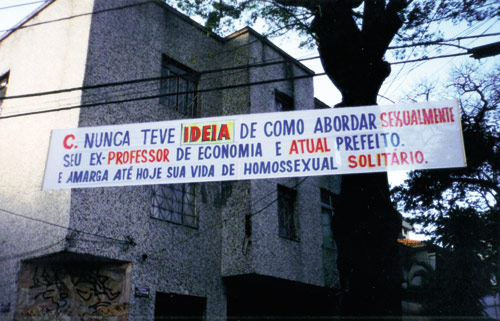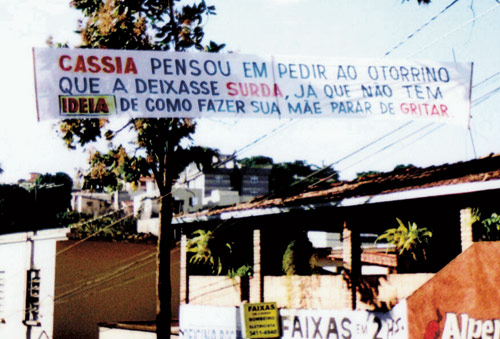2001-ongoing
Marta Neves

‘In 1974, Lucimar wanted to come up with an idea to make some money and get her husband out of a jam. She couldn’t think of anything and they remain poor.’ ‘All his life Babalu wanted to be Jesus Christ, but since he had no idea how to turn himself into the Saviour, he got a job at Banco do Brasil.’ ‘C had no idea how to sexually approach his former economics teacher and the current mayor, and, to this day, he leads a bitter life as a solitary homosexual.’
These are just a few of the many sentences that make up Marta Neves’s series Não-ideias [Non-Ideas]. All of them suggest inner desires or the urge to change present conditions – from the most ordinary to the most unusual and ambitious – which are made inviable due to a lack of ideas for achieving them on the part of the protagonists. Imagination itself is hampered by an absence of imagination. Still, in Marta Neves’s narrative, the unresolved proposition – supposedly viewed as failure – returns in a good-humoured manner when faced with the difficulty of taking initiatives within our ordinary existence. This void of non-ideas is, curiously, the most precious source of people’s imaginations – demonstrated by a certain odd brilliance in their stories. Letting the ideas rest seems to be the only way to maintain the ability to have new ones.

In the fast-paced grind of contemporary big cities, it seems impossible to imagine the experience of disenchantment – from the more private and intimate realms to collective, social circles, characterised by an increasing distrust in our economic and political systems – as capable of generating some sort of productivity. In response, Não-ideias, like Marta Neves’s other artistic actions, are an obligatory step for reconnecting with the world; an opening for publicly sharing ‘non-ideas’, and therefore invent new ways of imagining. – LP